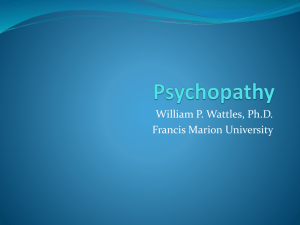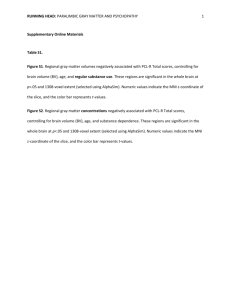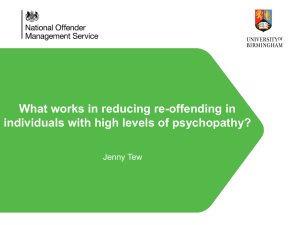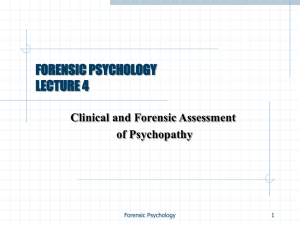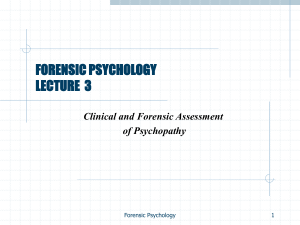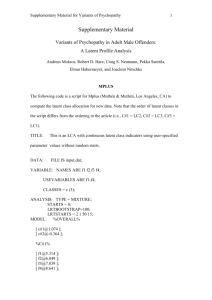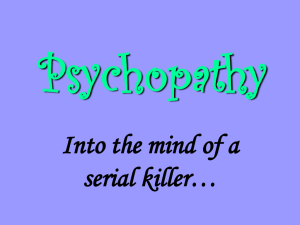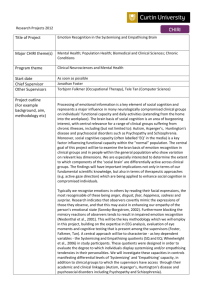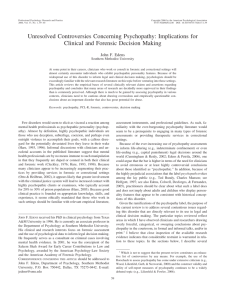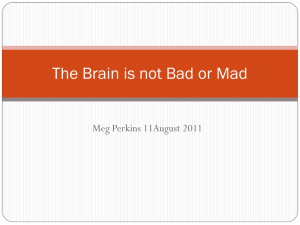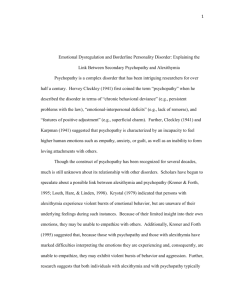Psychopathy Workshop Brochure
advertisement
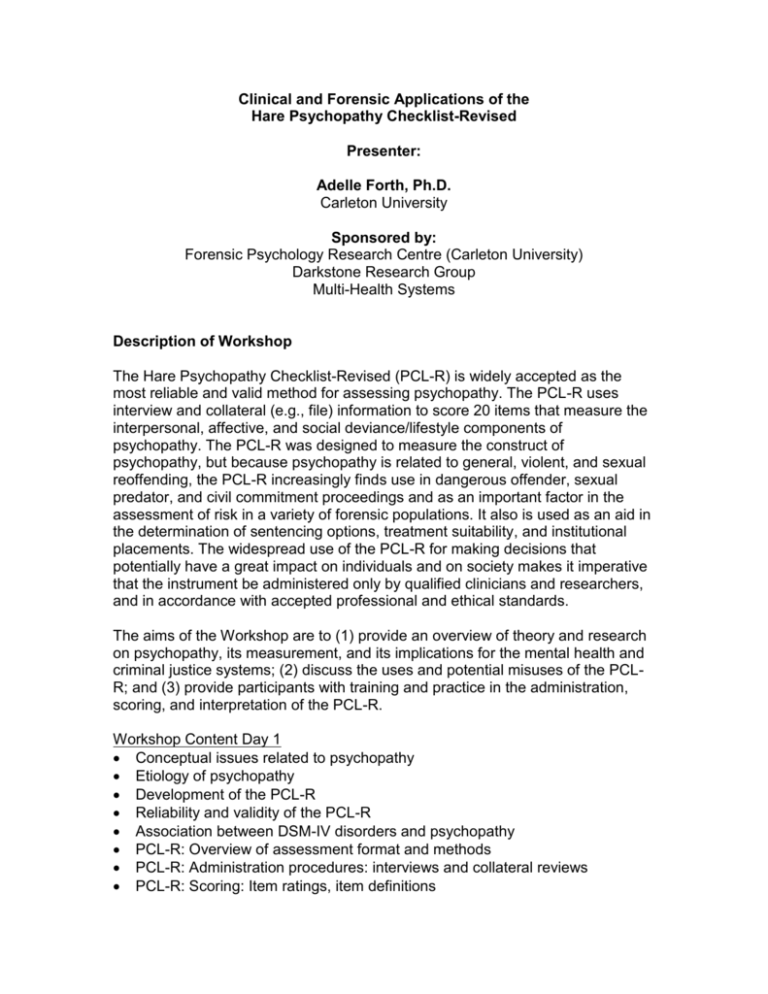
Clinical and Forensic Applications of the Hare Psychopathy Checklist-Revised Presenter: Adelle Forth, Ph.D. Carleton University Sponsored by: Forensic Psychology Research Centre (Carleton University) Darkstone Research Group Multi-Health Systems Description of Workshop The Hare Psychopathy Checklist-Revised (PCL-R) is widely accepted as the most reliable and valid method for assessing psychopathy. The PCL-R uses interview and collateral (e.g., file) information to score 20 items that measure the interpersonal, affective, and social deviance/lifestyle components of psychopathy. The PCL-R was designed to measure the construct of psychopathy, but because psychopathy is related to general, violent, and sexual reoffending, the PCL-R increasingly finds use in dangerous offender, sexual predator, and civil commitment proceedings and as an important factor in the assessment of risk in a variety of forensic populations. It also is used as an aid in the determination of sentencing options, treatment suitability, and institutional placements. The widespread use of the PCL-R for making decisions that potentially have a great impact on individuals and on society makes it imperative that the instrument be administered only by qualified clinicians and researchers, and in accordance with accepted professional and ethical standards. The aims of the Workshop are to (1) provide an overview of theory and research on psychopathy, its measurement, and its implications for the mental health and criminal justice systems; (2) discuss the uses and potential misuses of the PCLR; and (3) provide participants with training and practice in the administration, scoring, and interpretation of the PCL-R. Workshop Content Day 1 Conceptual issues related to psychopathy Etiology of psychopathy Development of the PCL-R Reliability and validity of the PCL-R Association between DSM-IV disorders and psychopathy PCL-R: Overview of assessment format and methods PCL-R: Administration procedures: interviews and collateral reviews PCL-R: Scoring: Item ratings, item definitions Workshop Content Day 2 PCL-R: Scoring of vignette cases PCL-R: Scoring of practice case Ethical issues and cautions about PCL-R use Incorporating the PCL-R in clinical decision-making Workshop Objectives At the conclusion to this program, participants should be familiar with: The conceptual and theoretical issues related to psychopathy The differences between, and implications of, the PCL-R criteria for psychopathy and DSM-IV criteria for APD The issues related to the use of clinical rating and self-report methods for assessing psychopathy The research on psychopathy, crime, violence, recidivism, and treatment outcome The administrating, scoring, and interpretation of the PCL-R The appropriate uses and limitations of the PCL-R This course provides 14 American Psychological Association CE Credits. MultiHealth Systems (MHS) maintains responsibility for the CE credits. Workshop attendees can purchase the PCL-R Preview Set at a 15% discount. Contact the MHS customer service directly and mention you are attending a PCL-R workshop sponsored by Darkstone Research Group. Contact MHS at 1800-268-6011 (Canada) or1-800-456-3003 (United States). The Trainer Adelle Forth, Ph.D., is an Associate Professor at the Department of Psychology at Carleton University in Ottawa, Ontario. She worked with Dr. Robert Hare to develop the Hare Psychopathy Checklist-Revised (PCL-R) and is the senior author of the Hare Psychopathy Checklist: Youth Version (PCL:YV; Forth, Kosson, & Hare, 2003). She is also a co-author of the Structured Assessment of Violence Risk in Youth, a risk scale for adolescent violence, and the textbook, Forensic Psychology (2006). Dr. Forth devotes her time to teaching and research on the assessment of psychopathy, the relationship between emotional and cognitive processes and psychopathy, and violence risk assessment. She has extensive experience training a wide variety of professionals on the administration, scoring, and use of the PCL-R and PCL:YV throughout North America and Europe and has testified in various court proceedings on the construct of psychopathy. Dr. Forth is noted for her organized, engaging and interactive presentational style. Proceeds of this workshop will go to support the newly formed Forensic Psychology Research Centre at Carleton University (www.carleton.ca/fprc) For more information contact: Adelle Forth 613-520-2600, ext. 1267 adelle_forth@carleton.ca
